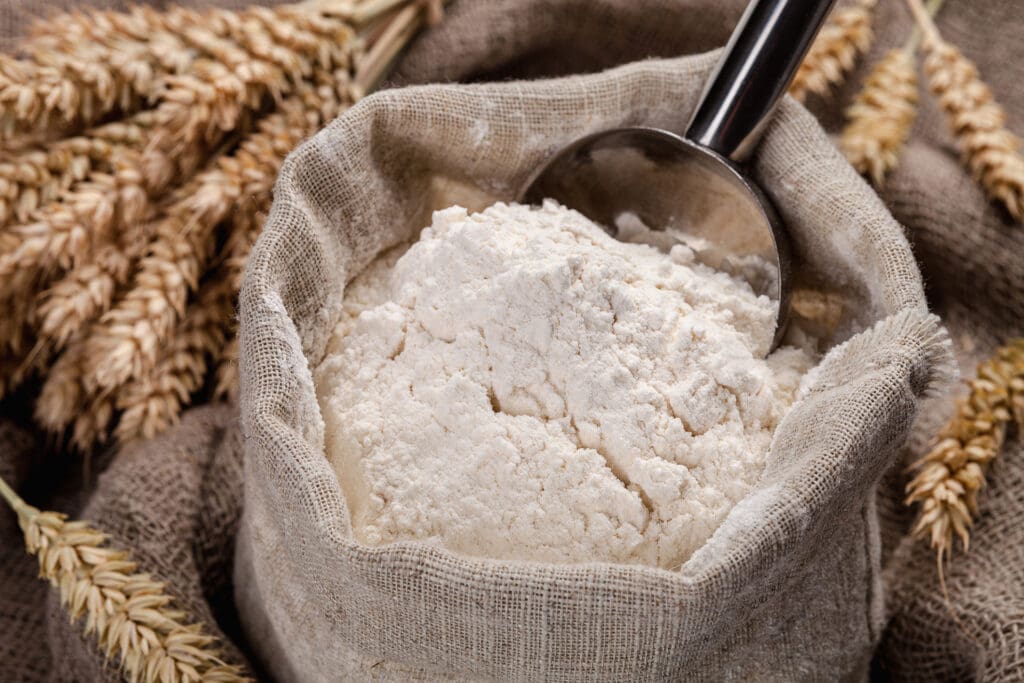
Organic flour has gained popularity among health-conscious bakers, home cooks, and professional chefs alike. But what makes organic flour different, and how can you choose the right type for your baking needs? Whether you’re looking for the best whole grain flour, wondering about the benefits of stone-ground flour, or interested in the flour nutrition advantages of organic options, this guide will help you make informed choices.
Baking is more than just a science—it’s an art that starts with high-quality ingredients. Baking with organic flour not only enhances the flavor and texture of your favorite recipes but also ensures that you’re using a product free from synthetic chemicals, additives, and processing agents. Unlike bleached flour, which is artificially aged using chemicals like benzoyl peroxide and chlorine gas, organic flour is naturally aged. Additionally, organic flour is not artificially processed or chemically ripened. By making the switch, you’ll enjoy healthier, cleaner, and more natural baked goods.
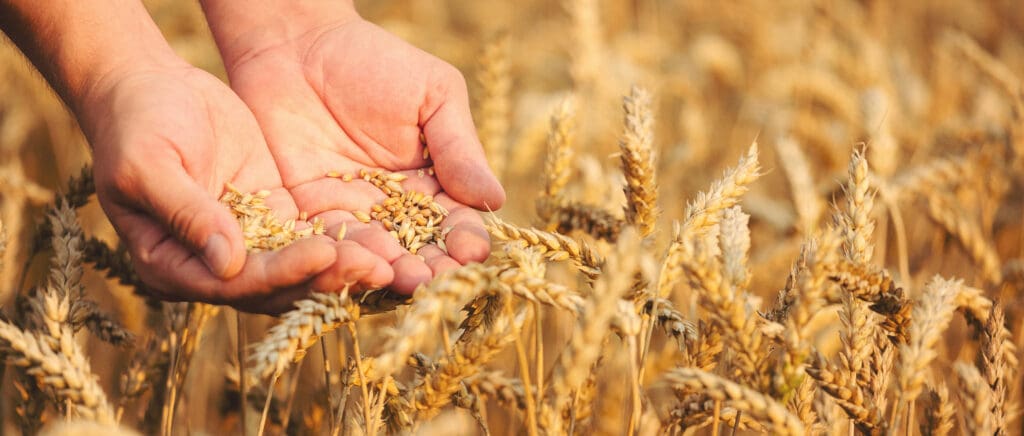
Organic flour is made from wheat or other grains that are grown without synthetic pesticides, herbicides, or artificial fertilizers. Organic flour is produced using organic grain, which is more nutritious and flavorful compared to conventional flours. Unlike conventional flour, it is minimally processed and free from chemical additives or bleaching agents. This means baking with organic flour ensures that your recipes are as natural and wholesome as possible.
One of the biggest advantages of organic flour is that it retains its natural nutrients and flavor. Since organic farming relies on sustainable practices, the wheat used in organic flour is often richer in vitamins, minerals, and antioxidants. This not only contributes to better flour nutrition but also enhances the taste of your baked goods, giving them a more robust and complex flavor profile. Unlike chemically ripened or bleached flours, organic flour supports healthier and more flavorful baking outcomes.
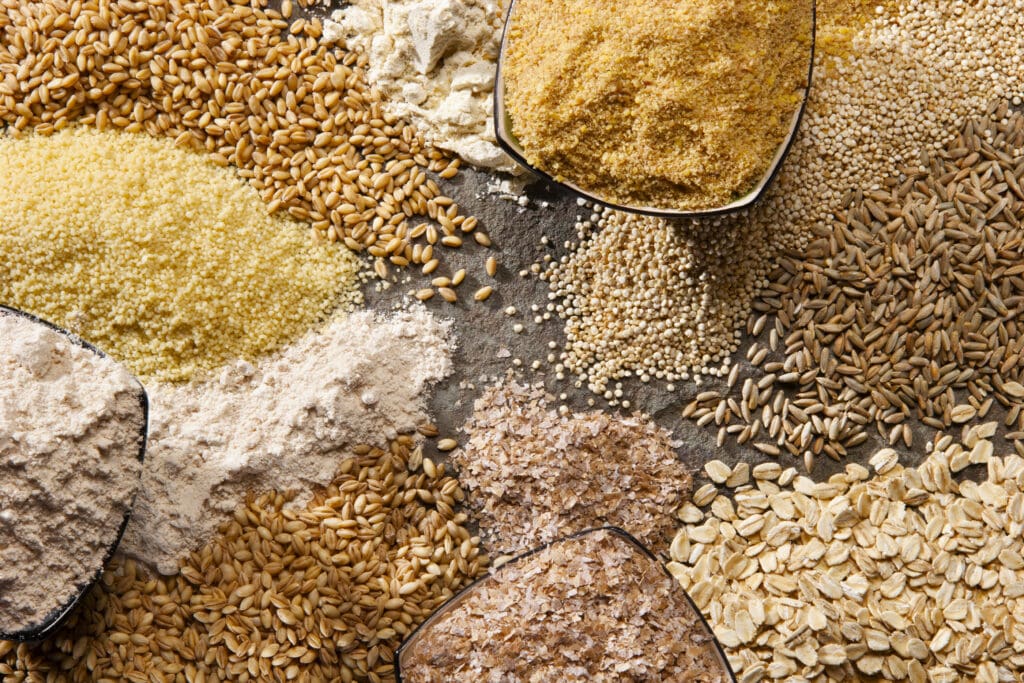
There are several types of organic flour, each with its unique qualities and best uses in the kitchen. Understanding the differences can help you choose the right one for your next baking project.
Using organic flour allows you to customize your baking based on flavor, texture, and nutritional content. Whether you’re making artisan bread, flaky pastries, or nutritious muffins, selecting the right type of organic flour will elevate your baking experience while ensuring that you’re using a high-quality, natural ingredient.
Whole grain flour is made by grinding the entire grain, including the bran, germ, and endosperm. This results in a more nutritious flour packed with fiber, vitamins, and minerals.
Since whole grain flour retains the entire wheat kernel, it provides a hearty texture and a slightly nutty flavor. Unlike commercial flours that are often bleached and can lead to a bitter aftertaste, organic flour is aged naturally without chemical additives, resulting in a more flavorful outcome. It is an excellent source of dietary fiber, which supports digestion and helps maintain steady blood sugar levels. Many health-conscious bakers prefer baking with organic flour made from whole grains to add more nutrients and depth to their recipes.
Unlike conventionally milled flour, stone-ground flour is processed using traditional stone mills, which preserve more of the grain’s natural oils and nutrients. This method retains more fiber and enhances flour nutrition, making it a healthier choice for baking.
Because stone-ground flour is milled at a slower speed, it experiences less heat damage, preserving the natural enzymes and nutrients found in the grain. This makes it a superior choice for bakers looking to maintain the integrity of their ingredients. Additionally, the coarser texture of stone-ground flour gives bread and baked goods a heartier consistency and a deeper, more complex taste.
For those who love to bake a variety of recipes, organic all-purpose flour is a versatile staple. It’s milled to remove some of the bran and germ but remains free from synthetic chemicals, preservatives, and bleaches.
Because it provides a balance between structure and tenderness, organic all-purpose flour is ideal for everything from cookies to pizza dough. Whether you’re baking bread, pastries, or homemade pasta, this flour ensures a consistently smooth texture while maintaining a higher flour nutrition profile than conventional all-purpose flour.
Organic bread flour has a higher protein content, which helps create strong gluten development for chewy, well-structured breads.
Gluten is essential for achieving the perfect rise and texture in yeast-based bread. The additional protein in organic bread flour helps trap air bubbles, resulting in fluffy loaves with a crisp crust. If you’re serious about baking with organic flour for artisan-style bread, this is a must-have ingredient.
This finely milled organic flour has a lower protein content, resulting in lighter, softer baked goods.
A lower protein percentage means less gluten development, which is ideal for delicate pastries and cakes. Baking with organic flour designed specifically for cakes and pastries ensures a tender crumb and a smooth, fine texture in your baked goods. This makes it the perfect choice for bakers who want to achieve a professional-level consistency in their sweet treats.

Switching to organic flour isn’t just a trend—it offers real benefits for both health and taste. Whether you’re a professional baker or just love making homemade goodies, using organic flour enhances the overall quality of your food.
The quality of the ingredients you use in your baking matters. By choosing baking with organic flour, you’re ensuring that your recipes are not only delicious but also free from harmful chemicals and additives. This results in a cleaner, more nutritious product that you can feel good about sharing with family and friends.
Because organic farming avoids synthetic chemicals and pesticides, organic flour contains higher levels of beneficial nutrients. The presence of natural fiber, vitamins, and minerals makes it a better choice for those who prioritize flour nutrition in their diet.
Unlike conventionally processed flours, which strip away much of the nutritional content, organic flour retains its natural elements. This means more antioxidants, B vitamins, and minerals like iron and magnesium, making it an excellent choice for health-conscious bakers.
Conventional flours may contain pesticide residues, additives, or bleaching agents. By baking with organic flour, you eliminate these unwanted chemicals from your food, making your baked goods cleaner and healthier.
Many health concerns have been linked to the prolonged consumption of synthetic additives found in conventional flours. Choosing organic flour reduces your exposure to these substances and supports a cleaner, more natural approach to baking.
Many bakers find that organic flour, especially stone-ground flour, has a richer, more robust flavor. This is because organic wheat varieties are often less processed and retain their natural oils and nutrients.
The freshness and purity of organic flour contribute to better-tasting bread, cakes, and pastries. The difference in taste is noticeable, with a depth of flavor that makes baked goods even more enjoyable.
Choosing organic flour supports farmers who use environmentally friendly organic farming practices. These methods help preserve soil fertility, protect water sources, and promote biodiversity.
By supporting organic farming practices, you’re helping to create a food system that prioritizes sustainability, reducing the environmental impact of large-scale agriculture while ensuring long-term soil health and productivity.
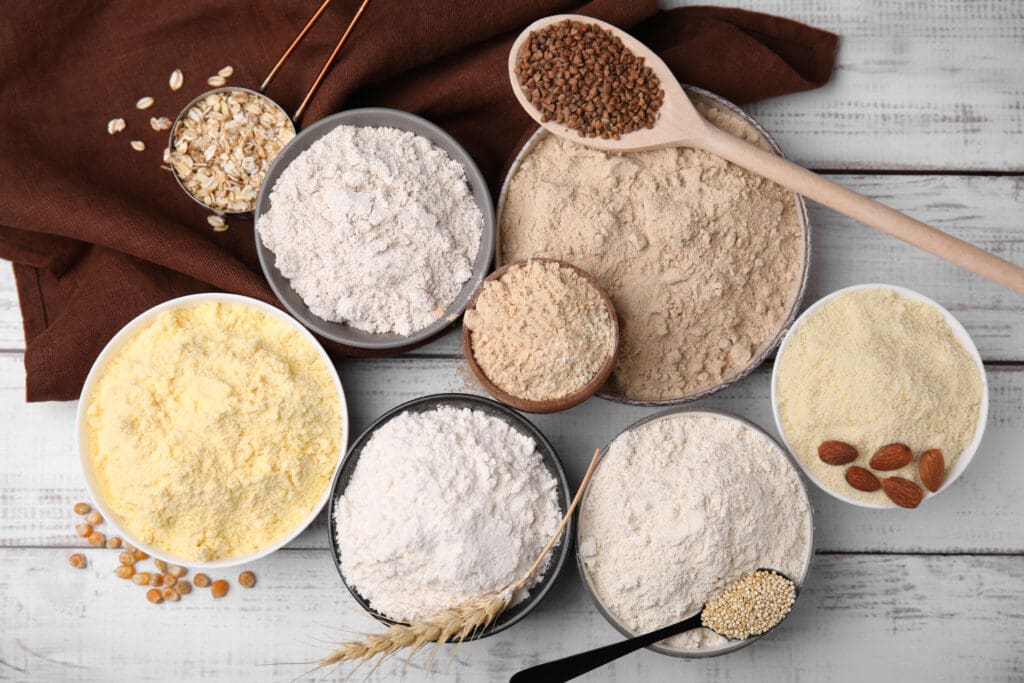
Stone milled flour is a game-changer for those who prioritize health and nutrition in their baking. Unlike factory-processed flour, stone milled flour retains more of the grain’s natural nutrients and fiber. This is because the traditional stone-milling process grinds the wheat slowly, preserving the healthy oils, proteins, and nutrients that are often lost in high-speed, factory milling.
One of the standout benefits of stone milled flour is its higher antioxidant content and lower glycemic index. This makes it an excellent choice for individuals managing diabetes or those looking to maintain stable blood sugar levels. The slower digestion of stone milled flour helps prevent spikes in blood sugar, contributing to better overall health.
Moreover, stone milled flour is typically made from organic wheat grown by local farmers, ensuring that it is free from pesticides and other harmful chemicals. This not only makes it a healthier option but also supports sustainable farming practices. By choosing stone milled flour, you’re not just baking better; you’re also making a positive impact on the environment.
Selecting the perfect organic flour for your baking needs can feel overwhelming, but it doesn’t have to be. Here are some tips to help you make the best choice:
By keeping these factors in mind, you can select the right organic flour that will elevate your baking and ensure delicious, healthy results.
Baking with organic flour can be a bit different from using conventional flour, but with a few adjustments, you can achieve perfect results every time. Here are some tips to help you get the most out of your organic flour:
By following these tips and choosing the right organic flour for your needs, you can create delicious and healthy baked goods that are perfect for any occasion. Happy baking!
Switching to organic flour is an easy way to make your baking healthier, tastier, and more sustainable. Whether you choose whole grain flour for its high fiber content, stone-ground flour for its rich flavor, or organic all-purpose flour for everyday baking, you can feel confident knowing you’re using a product that’s good for both your body and the environment.
At Doudlah Farms, we’re committed to providing the highest-quality organic flour for all your baking needs. Ready to make the switch? Explore our selection of premium organic flours and start baking better today!
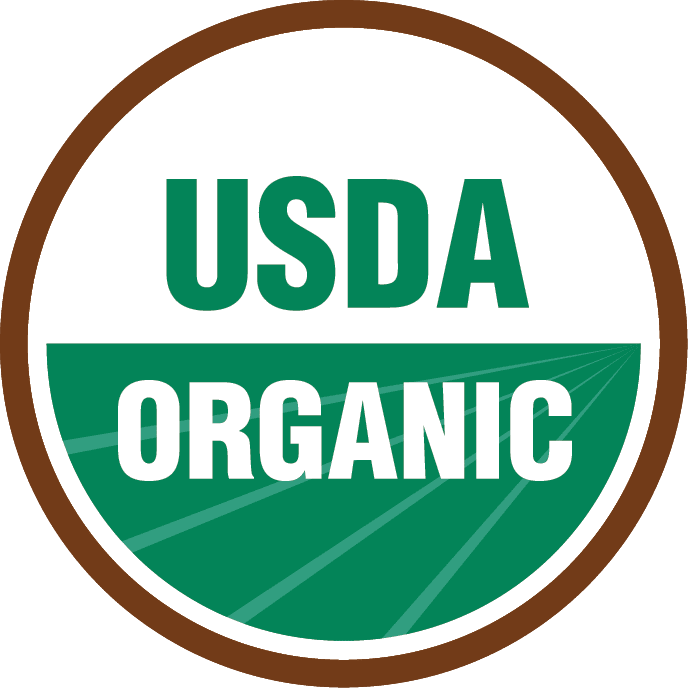
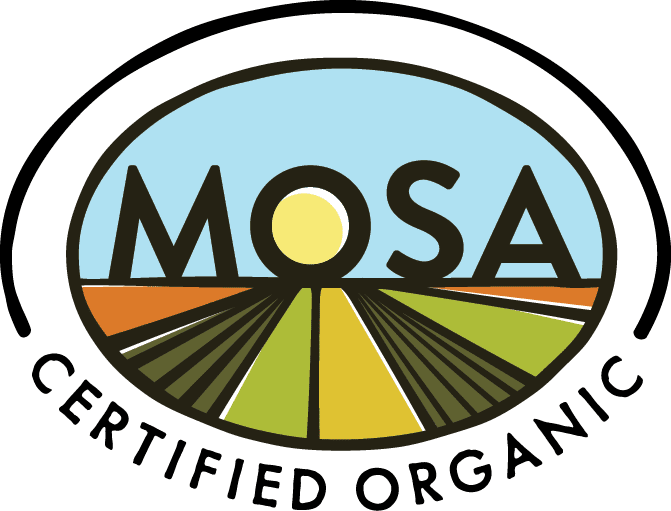





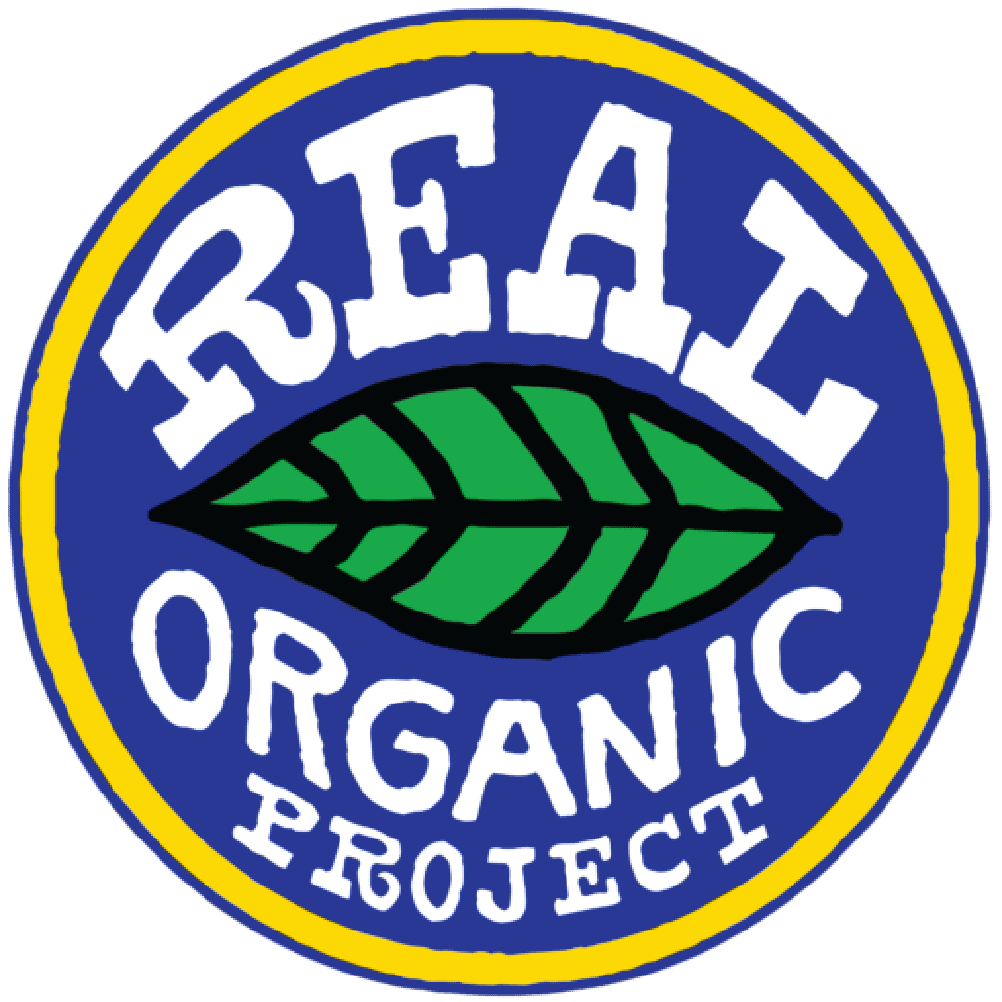

Sign Up for Exclusive Updates, Current Events, Recipes, and Special Offers and more!